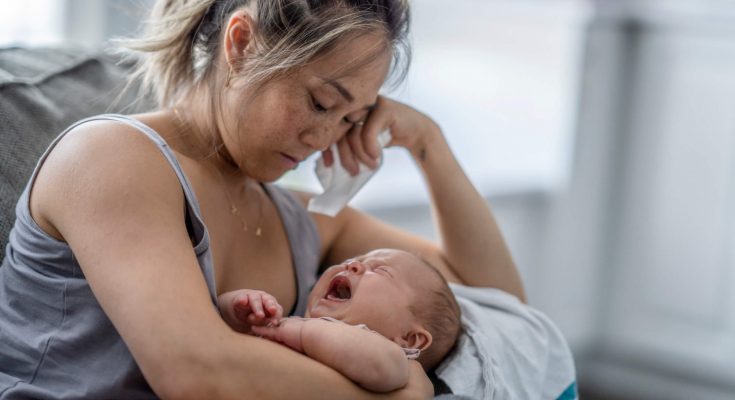Having a baby is not an easy task. It not just the journal of pregnancy and labor that is tough on the mother, but the process after the baby is born is not any easier as well.
The gravity of the situation perhaps becomes clearer when you hold the baby. Alongside experiencing love and marvel, it is also very natural to feel overwhelmed; you have this tiny human to take care of, and there is no room for error.
Women also have to take care of their bodies that have just recently endured the trauma of childbirth. Their emotions are also haywire, thanks also to the hormonal changes in the body. All these can then pave way for postpartum depression, a serious mental health condition that requires the intervention of the Best Psychiatrist in Lahore.
Postpartum depression: Symptoms
Postpartum depression is a category of depression that exclusively happens after having a baby. While many women have baby blues, PPD is much more serious. The symptoms also tend to last for longer than baby blues. Some signs of postpartum depression include:
- A hopeless outlook
- Anxiety and panic attacks
- Bouts of crying
- Dietary changes; either eating too little to too much
- Difficulty forming a bond with the baby, which makes women feeling inadequate
- Disruption in the normal routine
- Guilt about being a bad mother
- Feeling of shame and worthlessness
- Inability to take care of the baby or own health
- Inability to think properly
- Experiencing mood swings
- Problem thinking clearly and concentrating
- Reduced pleasure in activities that you once enjoyed
- Sleep problems; either sleeping too little or too much
- Thinking they are a bad mother
- Thoughts about suicide and harm.
Postpartum depression: Prevention
There are some ways you can lower your chances of getting postpartum depression. These include:
Getting your doctor on board
Women with a history of depression are at a greater risk for PPD. Hence, as soon as they decide to get pregnant, they should inform their OB-GYN. The doctor can then monitor their condition carefully during and after pregnancy and get them help where and when needed.
Notice the signs
Women should be aware of the signs and symptoms of PPD. If they start to experience these signs, rather than suffering and writhing in pain, they can then understand the signs are indicative of PPD and get help.
Ask your partner to help
The baby is not the mothers to raise alone. The father or the co-parent needs to do pull their weight as well. A baby is demanding. Catering to their needs whilst not compromising on the other chores and duties can be extremely overwhelming for the women and increase their risk for depression. Hence, ask your counterpart to help with the baby and other chores.
Have a support system
Misery sure does love company. Having people who understand where you are coming from and empathize with you can be a lot of help. So, join support groups for new mothers. Not only do you then have someone to talk to about your issues, rather than thinking of yourself as a bad mother, but this support also helps in boosting morale.
Work on self-care
You cannot take a good care of the by being negligent of yourself. Self-care also helps in staving off bad mood and blues. So, make sure that you also work on your needs.
Screenings for PPD
Make sure that you select a good OB-GYN who does screening for PPD after the baby is born. If the doctor notices early signs of postpartum depression, they can ensure timely help.
Getting help
Mothers with postpartum depression need urgent medical help. It is not just their life that is being affected, but that of the baby as well. A certain subset can also have postpartum psychosis, a medical emergency in which the mother might harm themselves or the baby. Hence, if you notice the signs and the prevention tips do not work, visit the Best Psychiatrist in Karachi, urgently.




